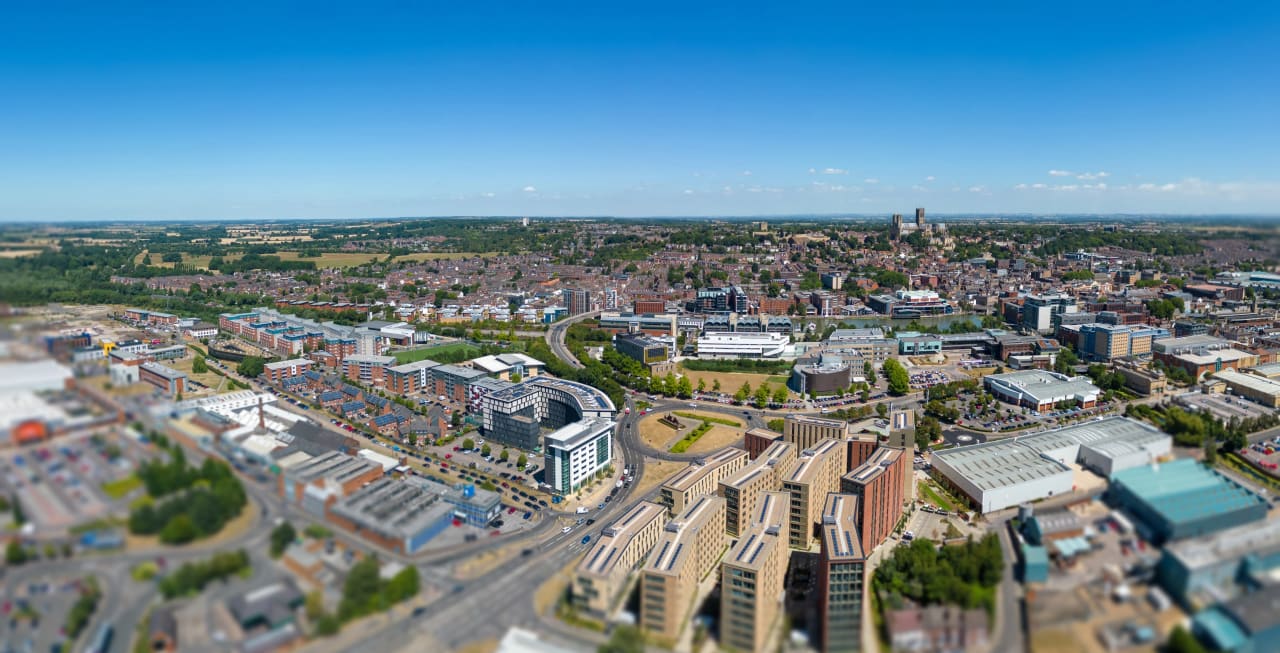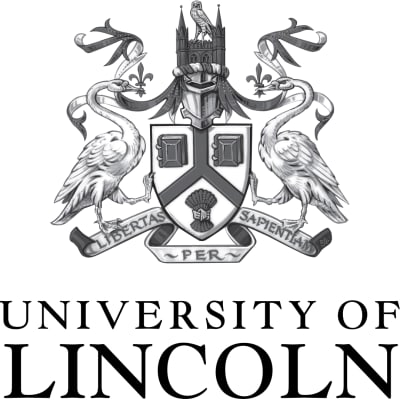
MSc Robotics and Autonomous Systems
University of Lincoln

Key Information
Campus location
Lincoln, United Kingdom
Languages
English
Study format
On-Campus
Duration
1 - 2 year
Pace
Full time, Part time
Tuition fees
Request info
Application deadline
Request info
Earliest start date
Request info
Introduction
The MSc Robotics and Autonomous Systems are designed to equip students with the advanced knowledge and skills needed to develop the innovative solutions required by the emerging global industry in Robotics and Autonomous Systems (RAS), and across many other sectors where RAS skills are applicable. These may include robotics and automation in agriculture, food processing, transport, logistics, manufacturing, healthcare, and nuclear. The program can also prepare students to continue their study in a research capacity, allowing them to further specialize and focus their interests. Lincoln hosts the UK's - and one of the world's - largest concentration of agricultural robotics researchers and is a major hub of UK agribusiness. Many though not all students choose to specialize in this area, including by collaborating with local companies who have existing R&D relationships with our research.
Course content is informed by research carried out at the University of Lincoln, especially in the Lincoln Centre for Autonomous Systems. This aims to ensure that content remains consistently underpinned by the latest thinking.
The program is an extension master. It assumes that students will have already completed a computer science or similar technology-based degree, and will want to extend that knowledge in depth and with a specialist focus on Robotics and Autonomous Systems (RAS).
The program gives students the chance to enhance and apply existing knowledge of computer programming and mathematical frameworks through laboratory workshops, lectures, debates, and independent research.
The course assumes a familiarity with programming concepts and the supporting mathematical framewor
Prioritising Face-to-Face Teaching
At the University of Lincoln, we strive to ensure our students’ experience is engaging, supportive, and academically challenging. Throughout the Coronavirus pandemic, we have adapted to Government guidance to keep our students, staff, and community safe. All remaining Covid-19 legal restrictions in England were lifted in February 2022 under the Government’s Plan for Living with Covid-19, and we have embraced a safe return to in-person teaching on campus. Where appropriate, face-to-face teaching is enhanced by the use of digital tools and technology and may be complemented by online opportunities where these support learning outcomes.
We are fully prepared to adapt our plans if changes in Government guidance make this necessary, and we will endeavour to keep current and prospective students informed.
"This information was correct at the time of publishing (July 2023)"
Admissions
Curriculum
How You Study
Students on this programme can experience a blend of different teaching and learning approaches. The programme aims to enable the development of skills through practical workshops in the laboratory, and academic knowledge through debate, lectures, discussion, and personal research.
Modules assume familiarity with programming concepts and the supporting mathematical framework while presenting advanced concepts relating specifically to the computing domain.
Each module typically consists of 12 weeks of study. This time includes a supporting lecture programme, a series of supported laboratory sessions, and time for the completion of assignment exercises and examinations. Weekly contact hours on this programme may vary depending on the individual module options chosen and the stage of the study.
The programme is also supported by online access to lecture material and related information.
The postgraduate-level study involves a significant proportion of independent study, exploring the material covered in lectures and seminars. As a general guide, for every hour spent in class, students are expected to spend at least two to three hours in an independent study.
For more detailed information please contact the Programme Leader.
Modules
- Advanced Artificial Intelligence (Core)
- Advanced Machine Learning (Core)
- Advanced Robotics (Core)
- Computer Vision (Core)
- Foundations of Robotics (Core)
- Frontiers of Robotics Research (Core)
- Research Methods (MSc Computer Science) (Core)
- Research Project (Core)
- Robot Programming (Core)
How You Are Assessed
The programme is assessed through a variety of means, including in-class tests, coursework, projects, and examinations. The majority of assessments are coursework based, reflecting the practical and applied nature of computer science. The final stage research project provides the opportunity to specialize and complete a piece of work of significant complexity.
Assessment Feedback
The University of Lincoln's policy on assessment feedback aims to ensure that academics will return in-course assessments to you promptly – usually within 15 working days after the submission date.
Gallery
Program Outcome
How You Study
Students on this Program can experience a blend of different teaching and learning approaches. The Program aims to enable the development of skills through practical workshops in the laboratory, and academic knowledge through debate, lectures, discussion, and personal research.
Modules assume a familiarity with programming concepts and the supporting mathematical framework, while presenting advanced concepts relating specifically to the computing domain. Each module typically consists of 12 weeks of study. This time includes a supporting lecture Program, a series of supported laboratory sessions, and time for the completion of assignment exercises and examinations. Weekly contact hours on this Program may vary depending on the individual module options chosen and the stage of study. The Program is also supported by online access to lecture material and related information.
Postgraduate level study involves a significant proportion of independent study, exploring the material covered in lectures and seminars. As a general guide, for every hour spent in class, students are expected to spend at least two to three hours in independent study.
Scholarships and Funding
Several scholarship options are available. Please check the university website for more information.
Career Opportunities
This course aims to develop the skills required for employment in the emerging Robotics and Autonomous Systems industry, and across many other sectors where these skills are applicable. These can include agri-food, transport, industry 4.0, healthcare, and logistics. Some graduates may choose to continue research at the doctoral level.